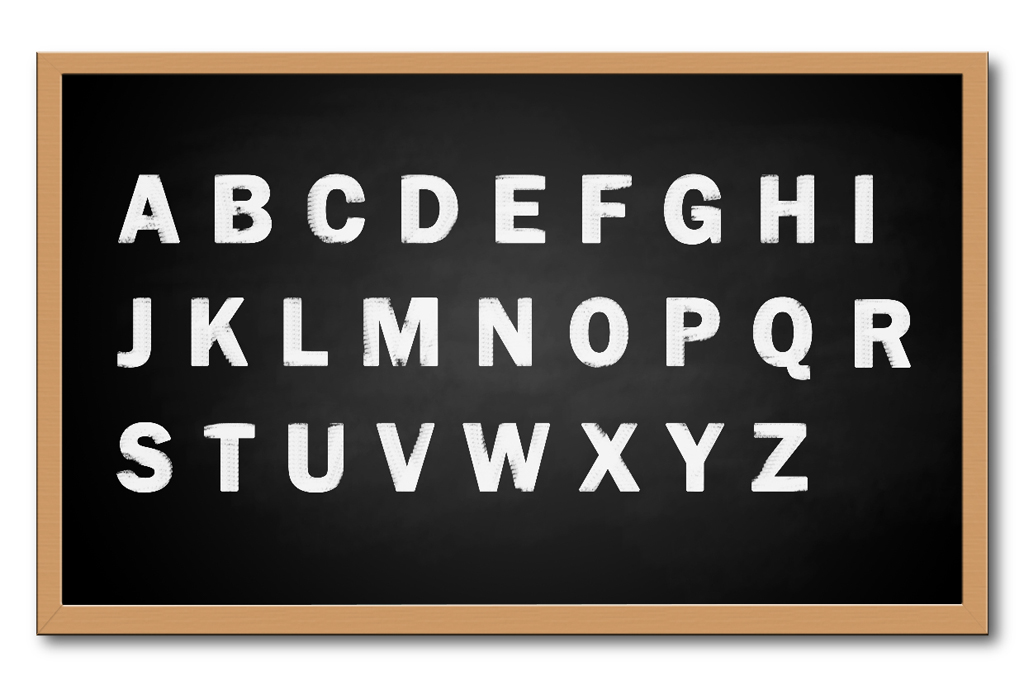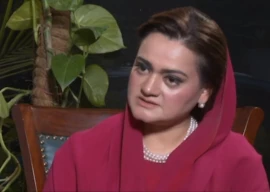
More than half of teachers in public primary and middle schools, and an even higher proportion of private school teachers, lack basic knowledge of English, even the ability to understand and use simple phrases, according to research conducted earlier this year.
The findings are part of a report – titled ‘Can English Medium Education Work in Pakistan? Lessons from the Punjab’ – that assesses the abilities of more than 2,000 teachers at public and private primary and middle schools.
According to the report, 56% of teachers at public primary and middle schools have “no measurable standard of functional language ability”. The situation in private schools, according to the report, is even worse, with 62% of teachers lacking basic knowledge of the language.
The Punjab government announced in 2009 that English would be the medium of instruction in all government schools in the province. The British Council and the Schools Education Department launched the Punjab Education and English Language Initiative (Peeli) earlier this week to address this shortcoming.
Findings
The report contains research conducted by the British Council, the Directorate of Staff Development (DSD) and the Idara-i-Taleem-o-Agahi, with support from the Punjab Education Foundation. The researchers surveyed more than 2,000 teachers from March 27 to April 23 this year, assessing speaking, listening, reading and writing skills.
It rates the teachers’ abilities on the Common European Framework of Reference for Languages (CEFR) scale. According to the assessment, 30% of government and 22% of private teachers are at the beginner’s level for English A1. Twelve per cent of private and government school teachers fall in category A2, also called the pre-intermediate level. And 3% of private and 2% of government teachers are in the B1 category, or the first level of the intermediate bracket.
During the course of the study, a new A0 level was established for those with no measurable standard of functional language ability. Fifty-six per cent of government teachers and 62% of private teachers were found to be in this category.
Things were slightly better at the middle school level than the primary school level, with 38% of middle teachers and 65% of primary teachers judged to be in the A0 category. Almost 94% of teachers at English medium schools were deemed to be in the pre-intermediate (A2) or lower levels (A1 or A0) of English language ability.
Training
“While the government took the leap of imposing English as the medium of instruction in view of the disparity between private and government schools, the ground reality is that teachers are not equipped to deal with this change,” says Soper Bhat, a training and development consultant with the Peeli project.
Bhat says that the need for extensive training became obvious last year, when the British Council assisted the DSD with the Primary English Teacher Training project. Some 28,000 teachers were trained in the first batch starting in February 2012, and another 30,000 over the last summer.
“We found out that teachers didn’t even know the language. They needed to learn English before teaching it in the classrooms,” she says.
This is where Peeli, a five-year programme that aims to train 330,000 teachers for the potential benefit of 15 millions students, comes in. The British Council resource centre in Lahore will be at the centre of the training regime, while digitally connected to DSD centres all over the province that will host the training sessions for the teachers.
Besides improving language skills, the training also seeks to impart innovative teaching methodologies that make learning fun and engaging, says Bhat.
“For this we will train teachers using the same methods we will ask them to introduce in the classrooms. After experiencing it themselves, they will understand the value of the techniques.”
She adds that the training will not just help students in getting better teachers. “For higher education, a good understanding of the English language is imperative. Also, for teachers, it will help them gain access to better employment opportunities,” she says.
Published in The Express Tribune, October 11th, 2013.
COMMENTS (12)
Comments are moderated and generally will be posted if they are on-topic and not abusive.
For more information, please see our Comments FAQ



1725030039-0/Untitled-design-(2)1725030039-0-165x106.webp)
1725366721-0/kyle-(1)1725366721-0-165x106.webp)





1732012115-0/Untitled-design-(14)1732012115-0-270x192.webp)






@nationalist:
True : "-------(since the Days of Lord Macaulay ,we..) have stated this sick mentality of the elite to forget their roots...."
" ----English should be taught at graduate level like other progressive nations such as ...do "
As an educationist, I agree with this . Between the age of 5 years and graduation, our rural children learn * so called* English from teachers whose command over it is poor . Learning is from a single text-book ; the idea is to pass an exam. Many can not speak correct English even after passing High School. * Most school leavers can not WRITE correct English *
Yes, some of them do catch-up in the first year or two, at the BA, BSc level of study. But don't mis the fact that these are high-achieving learners; thousands fail by the way-side in this process of mastering English.
Tell us what to do. Can we go back to change history ? No.
Can we modify the future ,so that the educational system has a RATIONAL language-aquiisition policy as regards the provincial language, the national language and the international language ( English).
To compund matters further, the mother-tongue of many a student may be a 4th language, apart from the one listed above.
@ahmed
you have stated this sick mentality of the elite to forget their roots, embrace English and enforce it to the commoners. How on earth can you accept that a child from rural areas of Punjab will start to learn English, whereas his/her mother tongue is Punjabi?
we are ashamed of who we are... as far as the syllabus or curriculum is concerned, we need to work it out for 10 years, but then we can revolutionize our whole generation. By emphasizing on English we are denying the child's basic right to knowledge. A main reason behind this "Awami Jahalat"!!
English should be taught at graduate level like other progressive nations such as Russia, China, Turkey, Germany, France, Italy etc have made, and not to be enforced on a 5 year old kid like the sick nations of Pakistan, India and Bangladesh are doing!
@nationalist:
Sir : "-----Name any single country in the world that hate it’s national language---"
In the HISTORY of post-British colonial SOUTH ASIA , the situation was and is that the huge subcontinent had plenty of well developed and functioning major languages in use. In those times the language of administration was English.
South Asian countries do not HATE their stated national languages. However, English is continuing to be the link-language, the language of inter-provincial communication and the medium of elite-education.
Every nation in South Asia is led , controlled and guided by the elites. English is an international language also.
English in needed in all higher technical education. How can we avoid its use in the technical,industrial and economic field.
Do we have books on higher mathematics or physics or chemistry at the PG or under-grad level in say URDU, Punjabi, HINDI, Marathi or malyalam ?
We are stuck.
Name any single country in the world that hate it's national language and embraced foreign language like English to be an path of success. I bet you can't!
@ahmed41: Yea, every doctor cannot perform surgery but they all are supposed to know the basics of medicine. Similarly if English is going to be the medium of instruction, it will not be a specialized field but a basic requirement for the teachers of every subject except, of course, Urdu, Arabic etc. Yet I wonder, instead of wasting resources on training teachers to master a foreign language that takes years at best, why not spend all these funds for using local languages as the medium of instruction. We are promoting English at the cost of our local languages when most of our students will never need to use English in their routine life but for our insistence to use the language as a status symbol to maintain status quo.
I find these statistics, in regard to Pakistan teachers incredible, but really am not unduly surprised. Having moved around the world I have found that the teachers of my children, almost without exception, had a lot to learn. However, there are many retired scholars with excellent English who would be prepared to spend their last few years teaching Pakistan children the rudiments of English to a reasonably high standard. Why are they not being used?" For example, although I am being facetious to some extent, and rather elderly, I am available! Obviously, there must be many relatively young people prepared to fill the gap, I can only repeat; why are they not being used?
FIRST : Many men and women enter the educational field as teachers because they do not get jobs elsewhere.
Second : Their motivation is low.
Third : They just want to do a 9am to 4pm job. The monthly SALARY is important , not the teaching and learning.
Last : many "TEACHERS" are just hopeless at basic Numbers, Arithmetic, Algebra and Geometry. But they have to teach. Similarly, many teachers are not goodat mastering and teaching a foreign language ,such as ENGLISH.
WHY ARE WE SURPRISED ? Can every medical doctor do surgery ?
Thank You.. General Zia-Ul-Haq!!!
@Singh:
Your incoherent comment shows that either you are drunk or English teacher in public school.
Everybody know it, whoever read comment written by Pakistani reader.
Most teachers would also get a BIG ZERO for correct Pakistan History (though not their fault).